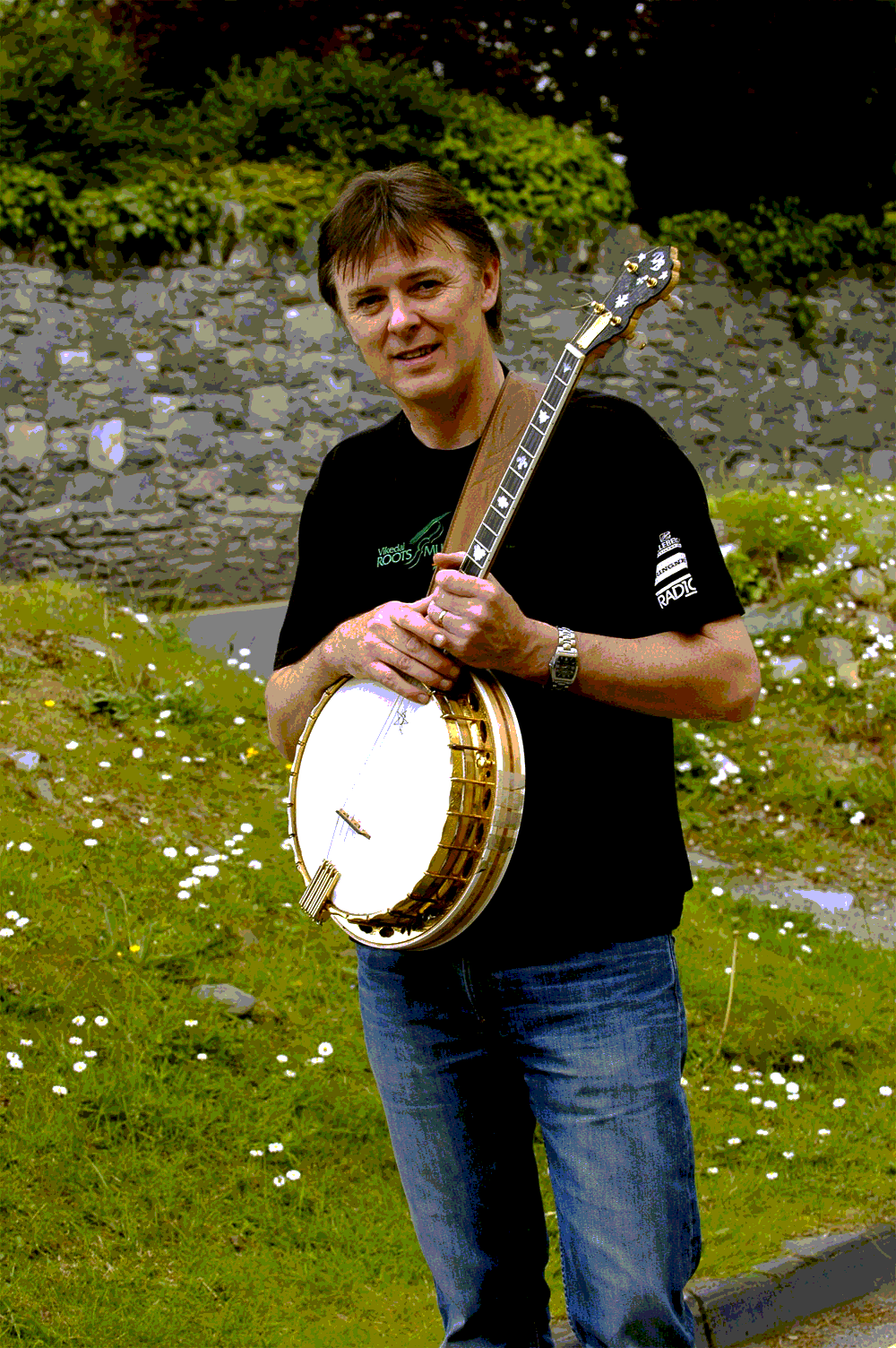
ARTIST ROSTER
CONTACT: irelandalongtheway@gmail.com
Thomas Gabriel (usa) Tim Carter (usa)
Gerry 'Banjo' O'Connor (Ireland) Damn The Banjos (usa)
Niamh Parsons (Ireland) Robin Lane (usa)


Listening to Thomas Gabriel, one can draw parallels to Steve Earle, Townes van Zandt or Johnny Cash.
In fact, as the eldest grandson of Cash, the voice comes naturally. Although undoubtedly influenced by his iconic grandfather, singer+songwriter Thomas seamlessly blends Americana, rock and country to create his own personal sound and carve out his individual path - he is intense, passionate and real.
LISTEN HERE:


GERRY O'CONNOR
Gerry O’Connor has brought the banjo to places no other player had tread before. He has travelled the world – physically and musically – experimenting with everything from Irish to bluegrass to African and Asian, and back to Irish. Both as a soloist and as a collaborator with numerous groups, Gerry has truly traced the banjo’s journey through the world of music.
Gerry’s contribution to Irish Music can best be summed up in the words of Earl Hitchener; Music Critic for the Wall Street Journal, Celtic Music, Irish Echo, CTMS Journal (USA): “Gerry O’Connor may be the single best four string banjoist in the history of Irish Music. It seems a tall statement to make but his phenomenal technique fully justifies it. O’Connor tosses off runs and ornaments with effortless virtuosity and his jazz-like penchant for experimentation and risk taking will remind listeners of American five string banjo players like Bela Fleck and Alison Brown. If ever a musician truly ‘owned’ the instrument he plays Gerry O’Connor ‘owns’ the four – string banjo... he is in every sense of the word sensational”.
Niamh Parsons has come to be known as one of the most distinctive voices in Irish music. Her voice has drawn comparisons to such
venerated singers as Dolores Keane, June Tabor and Sandy Denny. The great Scottish balladeer Archie Fisher said of Niamh, ‘a songstress like her comes along once or twice in a generation.’

NIAMH PARSONS
Longtime Southern California singer-songwriter Rick Shea got his early musical education in the bars and honky-tonks of San Bernardino where he grew up. With ten critically acclaimed albums, he’s performed all over Southern California, the West Coast, the US and in Europe, and built a solid career for himself as a solo artist, singer, guitarist and songwriter. Shea's songs reflect the folk, country, rock and Mexican influences he grew up with. "Songs tell our stories and our history and songs were how those stories were shared in the past, I like to continue that tradition."
"A hauntingly nostalgic vocalist, imperative guitarist and literate, detail-rich songwriter, do yourself a favor."
- Gary von Tersch, Sing Out
CLICK TO LISTEN HERE
CLICK HERE for video
Take four A-list musicians from Nashville; combine their talent, touring and studio chops; mix in a heavy dose of funked-up, folkified Americana, blues and rock; and get Damn The Banjos: a pseudo-supergroup rooted in the musical tradition of The Avett Brothers, The Way Down Wanderers, Old Crow Medicine Show, Tom Petty, James Taylor and John Prine.
Damn The Banjos is Tim Carter (banjo, mandolin, guitar, vocals), Mike McAdam (guitar, vocals), Dann Sherrill (drums, percussion) and Scotty Huff (bass, vocals). All four musicians are seasoned pros – player’s players whose collective resumes include touring and recording with some of the biggest names in Nashville, including Alison Brown, Vassar Clements, Hayseed Dixie, Steve Earle, Mary Chapin Carpenter, Radney Foster, Bonnie Bramlett, Engelbert Humperdinck, Steve Winwood, The Mavericks, Keith Urban, Jake Owen and Keb' Mo'.
TIM CARTER
DAMN THE BANJOS
CLICK HERE for video
ROBIN LANE
Robin Lane was born into a musical family in the city of Los Angeles. Her father was a songwriter and musical director for Dean Martin who wrote the hit "Everybody Loves Somebody Sometime." During high school, Robin became immersed in the music scene and the alternative life style of the late 60's and was inspired to write her own songs.
She began informal collaborations with the band Crazy Horse. This association led to her more formal debut - singing with Neil Young on his album Everybody Knows This Is Nowhere.
Robin opted to leave the wild and overwhelming music scene of LA and head eastward. It was in Cambridge in the late 70's, in an environment of cultural and intellectual experimentation that Robin was able to integrate punk and new wave influences, East Coast folk, and West Coast rock in her songs and her band -- the legendary Robin Lane and The Chartbusters. The band included ex-Modern Lovers Asa Brebner and Leroy Radcliffe who infected Lane's songs and sensibilities even further with their garage rock sound.
Robin Lane and the Chartbusters recorded three albums for Warner Brothers Records. The New Rolling Stone Record Guide gave the first album a prestigious four-star rating. The first single "When Things Go Wrong" received extensive national radio airplay, as well as being the 11th video played during MTV's first day of broadcasting in 1981
Wrote Geoffrey Himes for the Washington Post, "Though Blondie's Deborah Harry and the Pretenders' Chrissie Hynde have had more hits and better press, Robin Lane looms large as the most talented female artist to come out of New Wave Rock."
In 2010 Robin founded Songbird Sings, which is dedicated to helping people work through and recover from traumatic experiences by writing and recording their own songs. The workshops help to transform those who've been silenced by domestic violence, sexual exploitation, childhood abuse, and the horrors of war.




